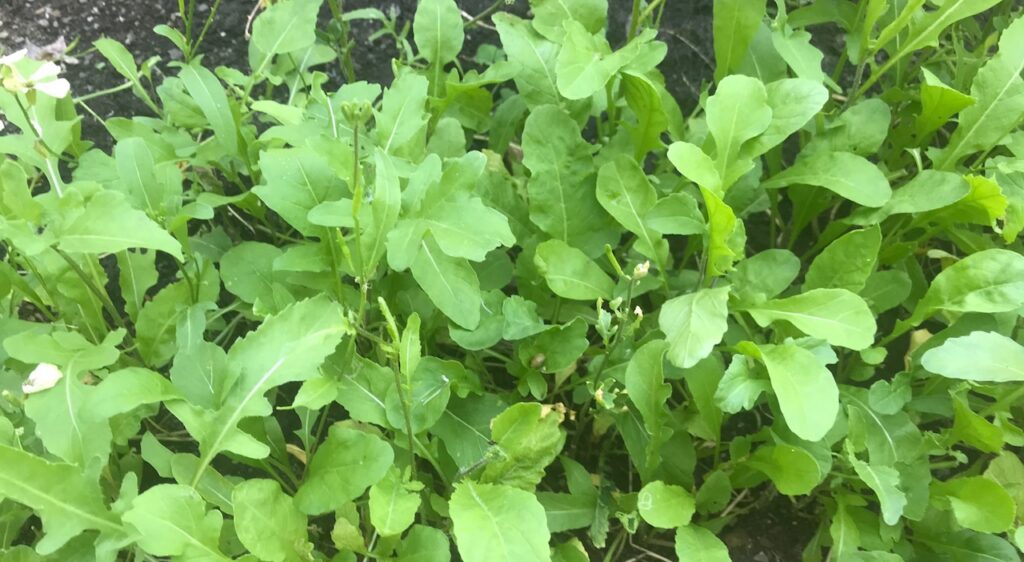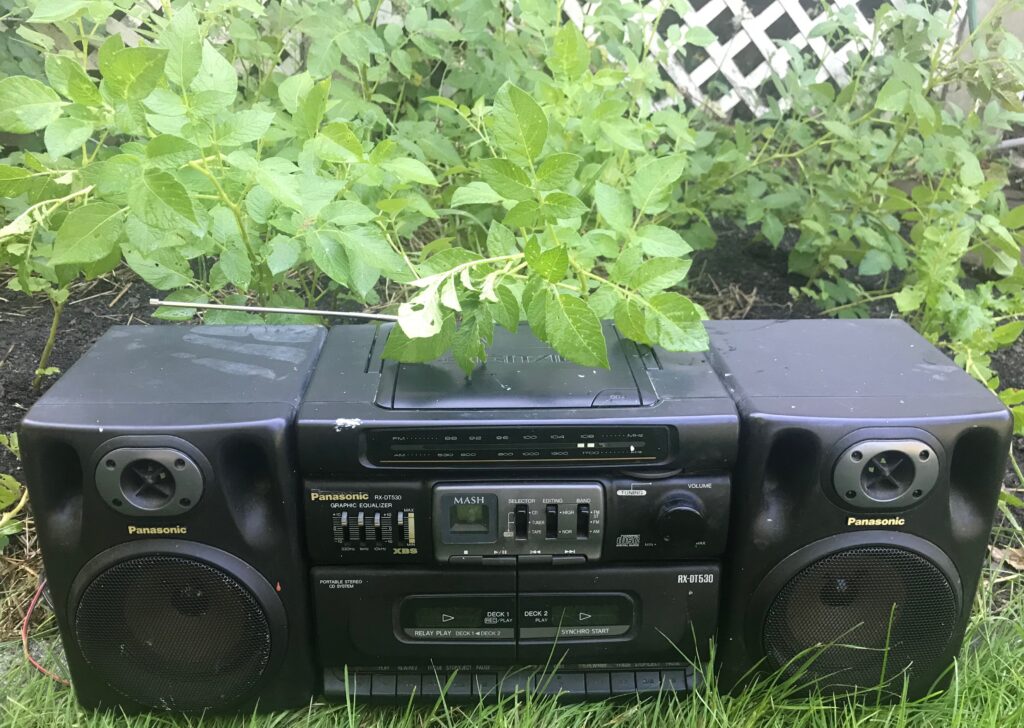An experiment being conducted in this West Island garden is intended to show that playing symphonies and concertos to growing vegetables produces better horticultural health and greater yield.
By STEPHANIE WHITTAKER

After two rows of lettuce failed to germinate in my garden this spring, I decided to try something I’d never done before. In fairness to the lettuce seeds, I’d bought them in 2021, so they were probably no longer viable. But the experience of scrutinizing bare soil day after day got me thinking about Cleve Backster.
Mr. Backster, who died in 2013, was an interrogation specialist for the CIA, an expert on the use of the polygraph (lie detector) test. But what he’s famous for is an experiment that he did in 1966 on a whim one evening while he was in his office. He attached polygraph electrodes to a plant to assess the length of time it took for water to reach the leaves. But then a strange thing happened: When Mr. Backster had a thought about cutting off leaves or burning them, the plant registered strong stress responses on the polygraph readings. Think of it as a horticultural silent scream. It was the beginning of Mr. Backster’s fascinating research on the power of human intention on plants and other living things. Plants, he concluded, have a level of telepathic awareness.
Then there’s the work of Masaru Emoto, a Japanese businessman who conducted experiments on the power of intention and prayer on water. He demonstrated that water that had been blessed with positive words and goodwill produced beautiful crystals when frozen; in contrast, water that had been cursed with abusive language created distorted crystals. Mr. Emoto wrote several books about his experiments; they include startling photos of the magnified crystals.
There’s also anecdotal evidence from farmers and vintners, which suggests that playing music over loudspeakers to farm animals and crops results in happy animals, healthy plants and increased yields.
But not just any music. It turns out that classical music is the best music for plants. Loud rock music and heavy metal can stunt growth or kill plants altogether. Angry rap music is the kiss of death. Plants don’t have ears to hear but, it seems, they do feel vibrations, and the music that spans the centuries from the Renaissance through the Rococo age, to the Romantic era offers the best vibes.
Determined to encourage the plants in my vegetable garden in their growth this season, I recently hauled The Beast out of storage. The Beast is a vintage CD player that has seen better days, but still plays CDs really well. With the help of an extension cord, it serenades the vegetables in our backyard with lovely soothing sounds. We—The Beast and I—have played Mozart, Bach, Beethoven, Rossini, Rodrigo, and Erik Satie among others. And the hits just keep on coming. There is some anecdotal evidence that plants prefer the sound of string instruments to that of, say, the French horn, oboe or tympani. We’ll see.

In the evenings, I serenade the zucchini and potatoes with a lovely rendition of Beethoven’s Moonlight Sonata and Mozart’s Eine kleine Nachtmusik. I like to imagine these pieces as lullabies for vegetables. And now, we—the Beast and I—are wondering if the eggplants, tomatoes and peppers might like Stan Getz and Astrid Gilberto as much as we do. Some research into the effect of bossa nova on plant yield is in order.
Until then, the vegetables are basking in the beauty of the classics. We will assess the outcome of this experiment at the end of the growing season. Stay tuned for photos of massive sweet peppers and bulbous tomatoes and eggplants. After all, a girl can dream, right?








